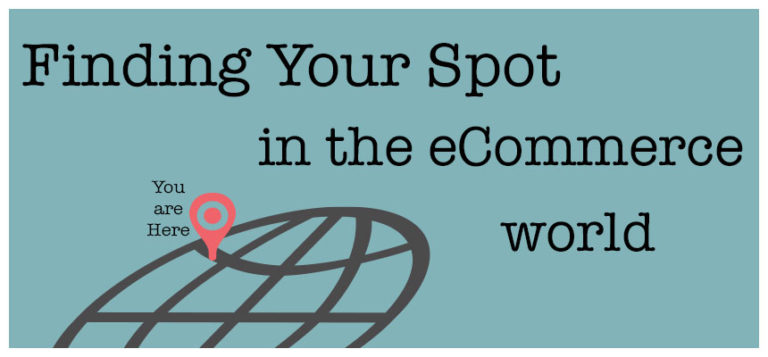Be unique. Go niche!

You ever hear the phrase “Jack of all trades, but master of none” (or something similar)? Just in case you haven’t, here’s the gist of it: if you try to be good at everything, eventually you end up being good at none of them. Most people take this to refer to what you do with your skills as a professional or—more generally—as a human being. However, the same case could be made for your business: the more you try to please and appeal to everybody, the more you’ll please and appeal to nobody.
Let’s take a look at Amazon for a moment. Yes, it’s the bane of our existence as small business retailers, but it’s a fact of life that it exists. So, what do people end up using Amazon for? To buy pretty much anything you want, right? You can get books, movies, games, furniture, electronics, food, clothes, and other things I probably couldn’t even imagine. But none of it is uniquely available at Amazon. It’s the Wal-Mart of the digital world, and if you try to do the same thing, chances are you’ll ultimately fail.
The part where Amazon falls short is if someone is looking for something unique. Something just for them that perhaps has been loved before, or was created with just them in mind. If you want something handmade, you probably won’t find it on Amazon. Something antique? Probably not Amazon. What about anything customized directly for your tastes? Not Amazon.

Being Generic is Boring
That’s why when looking at your business, you have to decide on a niche. Don’t sell just t-shirts, pick a specific type and method of sale. Perhaps you enlist the millions of budding t-shirt designers on the Internet and give them a theme, like Shirt.Woot does with its weekly Derbies. (Even still, the shirts all pretty much have an overarching theme of science and geekery.) Take blipshift, one of our customers that we featured last week. They could have gone into the t-shirt business and opened it up to every theme possible, but instead they geared themselves towards just the automotive industry.
Think about all the people you’ve seen on Shark Tank or know to be successful. They all have their niche. Simple Sugars sells only a few versions of sugar scrubs. Just really, really good sugar scrubs. Need another example? Take Duke Cannon Supply Co. and their 3 versions of manly soap. Their “About Us” page screams their personality—and their intentions for their business—loud & clear. The limited offerings of these two companies is not a detriment by any means. Rather, it’s their calling card. People flock to companies such as these because they have mastered their product, found their niche, and are owning it.
Bilbo Baggins said in Fellowship of the Ring that “I feel […] sort of stretched, like butter scraped over too much bread,” when referencing his unnaturally long life due to his possession of the Ring. That’s how I imagine a business and its employees feel if it’s trying to do too much. It’s an easy trap to fall into. Your customers will ask you to offer more, do more for them. It can be really tough to say no.
Don’t Be a Faceless Shelf of Stuff
It’s why when you decide on your niche, you also need to build a personality around it. Amazon doesn’t have a personality as a company. Not really. Jeff Bezos certainly has a personality, and some may associate it with his company, but look at the Twitter or Facebook of Amazon. It’s all very neutral. You equate Amazon with “buy lots of stuff,” or “2-day free shipping” or something of the like. You don’t associate Amazon with a fun and quirky entity with whom you can have a conversation. If you take a peek at the Simple Sugars Twitter page, you’ll notice lots of conversations, pictures of their fabulous sushi lunches, and other things that make them human.
People identify with this, and start thinking of your company as more along the lines of a friend than a line item on their credit card bill. As you find your niche and solidify your personality, you’ll find your community. With a strong community comes more engagement with your customers, possibly a higher retention and re-order rate, and a higher chance for your regulars to become your evangelists.
If you’re just starting your business and thinking about what you should sell, take a good look at your proposed product line. Think about what you’d do if you got an order every day for one of each of your products. Does it make your head spin? Fix it.
Then look at your customer communications, product descriptions, and website copy. Can you easily identify your company’s tone of voice and persona by reading it? Does it sound like a human or a dictionary? If not, fix it. Be personable. Be unique. Go niche.


